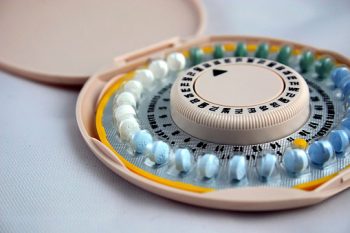
A study published in The Lancet Oncology found that maternal hormonal birth control use affects non-lymphoid leukemia development in children. “Since almost no risk factors have been established for childhood leukemia, these findings suggest an important direction for future research into its causes and prevention,” the authors wrote.
The study followed a nationwide cohort of more than 1 million liveborn children between January 1, 1996, and December 31, 2014, who were listed in the Danish Medical Birth Registry. The researchers identified those diagnosed with leukemia in the Danish Cancer Registry and used data from the Danish National Prescription Registry to identify redeemed prescriptions for maternal hormonal contraceptives. Birth control use was categorized as: no use (never used contraception before birth), previous use (>3 months before start of pregnancy), and recent use (≤3 months before and during pregnancy).
https://twitter.com/CarrascalAlvaro/status/1039476651376238592
During the study period, 606 children were diagnosed with leukemia, including lymphoid leukemia (n=465) and non-lymphoid leukemia (n=141).
Children born to women with recent use of any hormonal contraception were at higher risk for any leukemia than children born to women who never used this contraception (hazard ratio [HR] = 1.46; 95% CI, 1.09-1.96; P=0.011). There was no association between timing of birth control use and risk for lymphoid leukemia (previous use, HR=1.23; 95% CI, 0.97-1.57; P=0.089 versus recent use, HR=1.27; 95% CI, 0.90-1.80; P=0.167).
Article on use of hormonal contraception & leukemia in kids. I cringe in anticipation of media handling. tl;dr: "Hormonal contraception use…might have resulted in one additional case of leukaemia per about 50k exposed children, or 25 cases [over 9 yrs]." https://t.co/59yXTqRoK5
— Brendan Hayes (@brendanmhayes) September 10, 2018
The researchers concluded that hormonal contraception use close to or during pregnancy might have resulted in one additional case of leukemia per about 50,000 exposed children, or 25 cases during the 9-year period.
Lack of microbial infection early in life could lead to childhood leukemia.
Can AML be predicted and prevented years in advance?
Source: The Lancet Oncology







 © 2025 Mashup Media, LLC, a Formedics Property. All Rights Reserved.
© 2025 Mashup Media, LLC, a Formedics Property. All Rights Reserved.